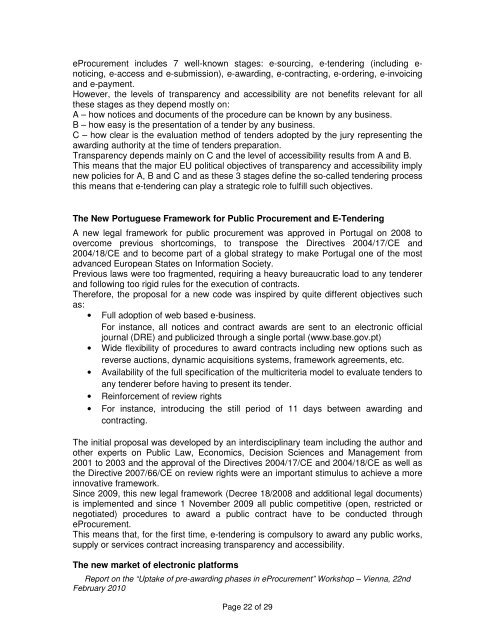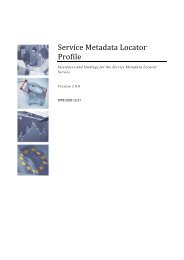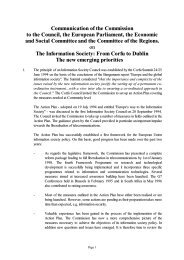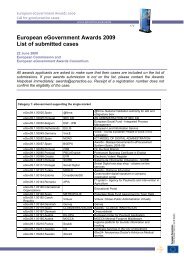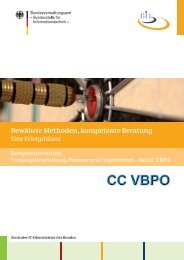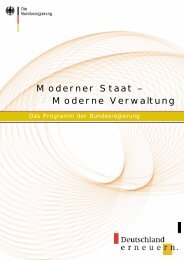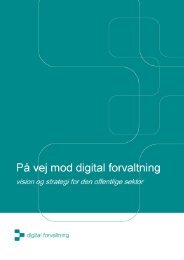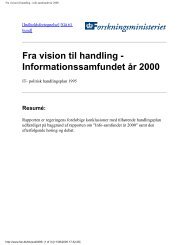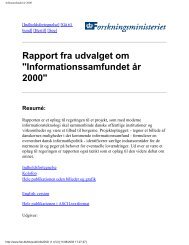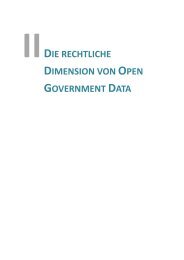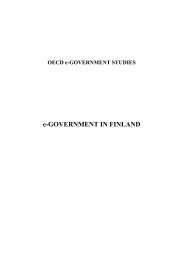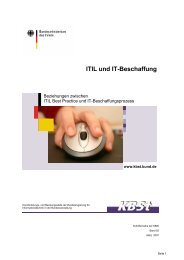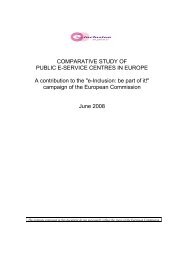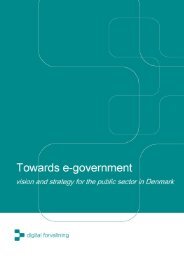eProcurement Forum Uptake of pre-awarding phases ... - ePractice.eu
eProcurement Forum Uptake of pre-awarding phases ... - ePractice.eu
eProcurement Forum Uptake of pre-awarding phases ... - ePractice.eu
Create successful ePaper yourself
Turn your PDF publications into a flip-book with our unique Google optimized e-Paper software.
<strong>eProcurement</strong> includes 7 well-known stages: e-sourcing, e-tendering (including enoticing,<br />
e-access and e-submission), e-<strong>awarding</strong>, e-contracting, e-ordering, e-invoicing<br />
and e-payment.<br />
However, the levels <strong>of</strong> transparency and accessibility are not benefits relevant for all<br />
these stages as they depend mostly on:<br />
A – how notices and documents <strong>of</strong> the procedure can be known by any business.<br />
B – how easy is the <strong>pre</strong>sentation <strong>of</strong> a tender by any business.<br />
C – how clear is the evaluation method <strong>of</strong> tenders adopted by the jury re<strong>pre</strong>senting the<br />
<strong>awarding</strong> authority at the time <strong>of</strong> tenders <strong>pre</strong>paration.<br />
Transparency depends mainly on C and the level <strong>of</strong> accessibility results from A and B.<br />
This means that the major EU political objectives <strong>of</strong> transparency and accessibility imply<br />
new policies for A, B and C and as these 3 stages define the so-called tendering process<br />
this means that e-tendering can play a strategic role to fulfill such objectives.<br />
The New Portuguese Framework for Public Procurement and E-Tendering<br />
A new legal framework for public procurement was approved in Portugal on 2008 to<br />
overcome <strong>pre</strong>vious shortcomings, to transpose the Directives 2004/17/CE and<br />
2004/18/CE and to become part <strong>of</strong> a global strategy to make Portugal one <strong>of</strong> the most<br />
advanced European States on Information Society.<br />
Previous laws were too fragmented, requiring a heavy bureaucratic load to any tenderer<br />
and following too rigid rules for the execution <strong>of</strong> contracts.<br />
Therefore, the proposal for a new code was inspired by quite different objectives such<br />
as:<br />
• Full adoption <strong>of</strong> web based e-business.<br />
For instance, all notices and contract awards are sent to an electronic <strong>of</strong>ficial<br />
journal (DRE) and publicized through a single portal (www.base.gov.pt)<br />
• Wide flexibility <strong>of</strong> procedures to award contracts including new options such as<br />
reverse auctions, dynamic acquisitions systems, framework agreements, etc.<br />
• Availability <strong>of</strong> the full specification <strong>of</strong> the multicriteria model to evaluate tenders to<br />
any tenderer before having to <strong>pre</strong>sent its tender.<br />
• Reinforcement <strong>of</strong> review rights<br />
• For instance, introducing the still period <strong>of</strong> 11 days between <strong>awarding</strong> and<br />
contracting.<br />
The initial proposal was developed by an interdisciplinary team including the author and<br />
other experts on Public Law, Economics, Decision Sciences and Management from<br />
2001 to 2003 and the approval <strong>of</strong> the Directives 2004/17/CE and 2004/18/CE as well as<br />
the Directive 2007/66/CE on review rights were an important stimulus to achieve a more<br />
innovative framework.<br />
Since 2009, this new legal framework (Decree 18/2008 and additional legal documents)<br />
is implemented and since 1 November 2009 all public competitive (open, restricted or<br />
negotiated) procedures to award a public contract have to be conducted through<br />
<strong>eProcurement</strong>.<br />
This means that, for the first time, e-tendering is compulsory to award any public works,<br />
supply or services contract increasing transparency and accessibility.<br />
The new market <strong>of</strong> electronic platforms<br />
Report on the “<strong>Uptake</strong> <strong>of</strong> <strong>pre</strong>-<strong>awarding</strong> <strong>phases</strong> in <strong>eProcurement</strong>” Workshop – Vienna, 22nd<br />
February 2010<br />
Page 22 <strong>of</strong> 29


